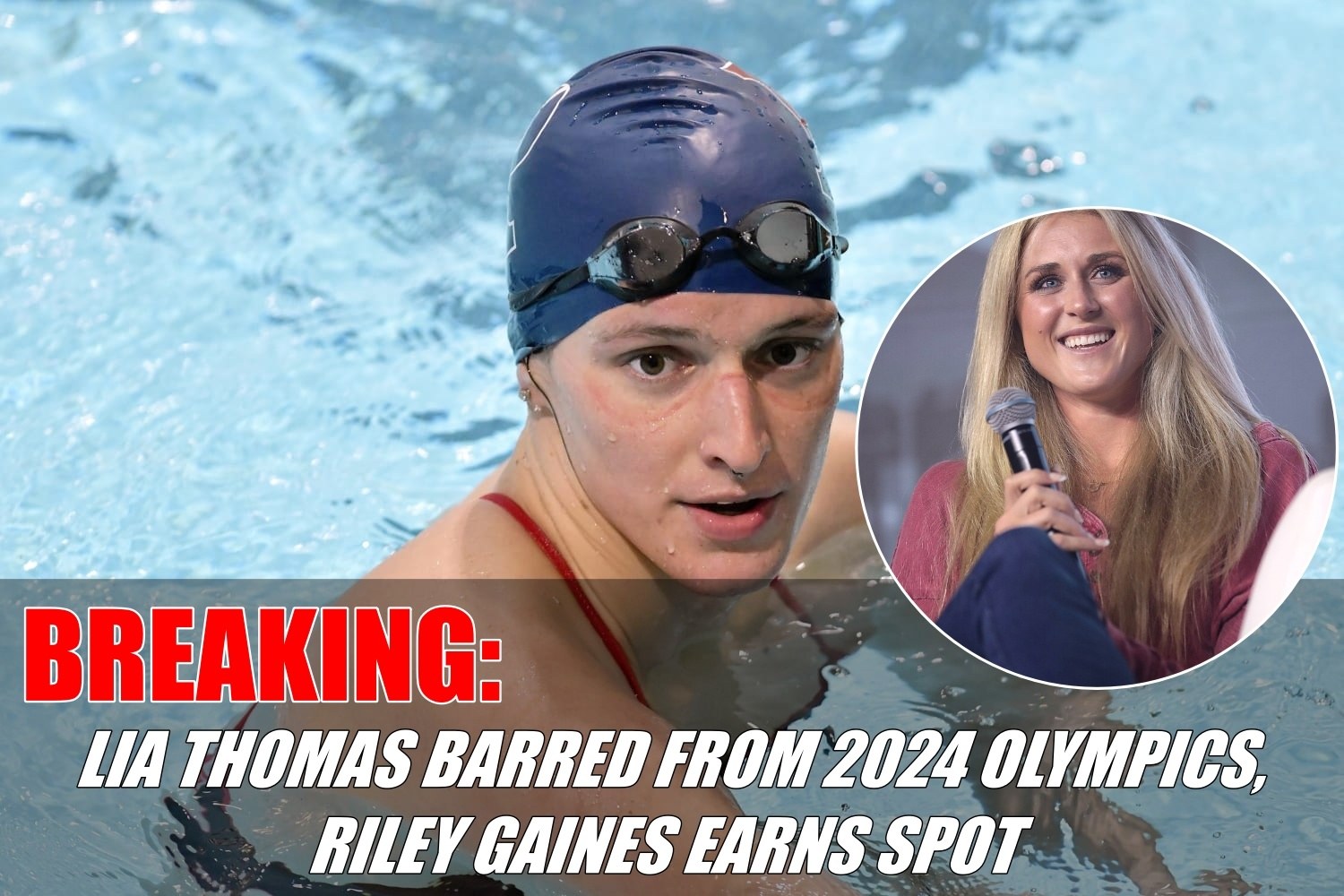UPDATE: Lia Thomas Excluded from 2024 Olympics, Riley Gaines Takes Her Place
In a significant development in the world of competitive swimming, Lia Thomas, the transgender athlete who made headlines for her participation in women’s swimming events, has been excluded from the 2024 Olympics. This decision has stirred a wave of reactions and discussions within the sports community and beyond. In her place, Riley Gaines, a prominent swimmer and advocate for women’s sports, has been selected to compete in the upcoming Olympic Games.
The Background: Lia Thomas and Her Journey
Lia Thomas, a former swimmer at the University of Pennsylvania, gained national attention for her groundbreaking achievements in women’s swimming after transitioning. Her participation in NCAA competitions sparked intense debates about the inclusion of transgender athletes in women’s sports. Supporters argued that Thomas’s presence was a testament to inclusivity and breaking barriers, while critics raised concerns about fairness and the implications for cisgender female athletes.
Thomas’s performances, particularly her success at the NCAA championships, highlighted the complexities of the conversation surrounding gender identity in sports. As she became a symbol of both progress and controversy, the dialogue around her participation also illuminated broader societal issues regarding gender, identity, and equity in athletics.
The Decision: Exclusion from the 2024 Olympics
The decision to exclude Lia Thomas from the 2024 Olympics was announced by the International Swimming Federation (FINA), which has tightened its regulations regarding the eligibility of transgender athletes in elite competitions. These new guidelines stipulate that transgender women must have transitioned before the age of 12 to compete in women’s categories, a ruling that directly impacts Thomas, who began her transition later in life.
This decision has sparked mixed reactions. Supporters of the ruling argue that it restores fairness in women’s sports, ensuring that cisgender female athletes are not disadvantaged by physical advantages associated with male puberty. Conversely, advocates for transgender rights see this as a setback for inclusivity, asserting that it undermines the rights of transgender athletes to compete at the highest levels.
Riley Gaines: A New Face in Olympic Swimming
In the wake of Thomas’s exclusion, Riley Gaines has emerged as a central figure in the narrative surrounding women’s sports. A former NCAA swimmer herself, Gaines has been vocal about her concerns regarding fairness in competition and has advocated for policies that protect women’s sports from perceived injustices related to transgender athletes’ participation.
Gaines’s selection to take Thomas’s place in the Olympics adds another layer to the ongoing discussion about gender and competition in athletics. She has expressed her excitement about the opportunity to represent her country on such a prestigious platform, emphasizing the importance of ensuring that women’s sports remain a level playing field.
The Broader Implications for Women’s Sports
The developments surrounding Lia Thomas and Riley Gaines touch on a larger conversation about the future of women’s sports. As policies regarding transgender athletes continue to evolve, the implications for competitions at all levels are profound. This situation has prompted organizations, governing bodies, and athletes to reconsider how they define eligibility and ensure fairness in competition.
Many female athletes have voiced their opinions on this matter, with some aligning with Gaines’s stance while others advocate for more inclusive policies that allow transgender women to compete. The dialogue underscores the need for ongoing discussions about equity, representation, and the evolving nature of gender in sports.
Public Reaction and Future Considerations
Public response to these developments has been polarized. Social media platforms have been abuzz with opinions, with some praising the decision to exclude Thomas while others condemn it as discriminatory. Advocacy groups on both sides of the issue continue to mobilize, pushing for legislation and policies that reflect their perspectives on gender identity and sports.
As the 2024 Olympics approach, this situation will likely continue to be a focal point of discussion, drawing attention from media, athletes, and the public alike. The decisions made by sports organizations will not only impact the athletes involved but also set precedents for future competitions and the treatment of transgender individuals in sports.
Conclusion
The exclusion of Lia Thomas from the 2024 Olympics and the emergence of Riley Gaines as her replacement signify a pivotal moment in the ongoing debate over gender identity in competitive sports. As the world watches the unfolding events, it is essential to recognize the complexity of this issue, balancing the rights of all athletes while striving for fairness and inclusivity in competition.
This situation calls for thoughtful dialogue, understanding, and a commitment to finding solutions that honor both individual identities and the integrity of women’s sports. As we move forward, the lessons learned from this experience will shape the future landscape of athletics, influencing policy, participation, and the definition of fairness in the sporting arena.






